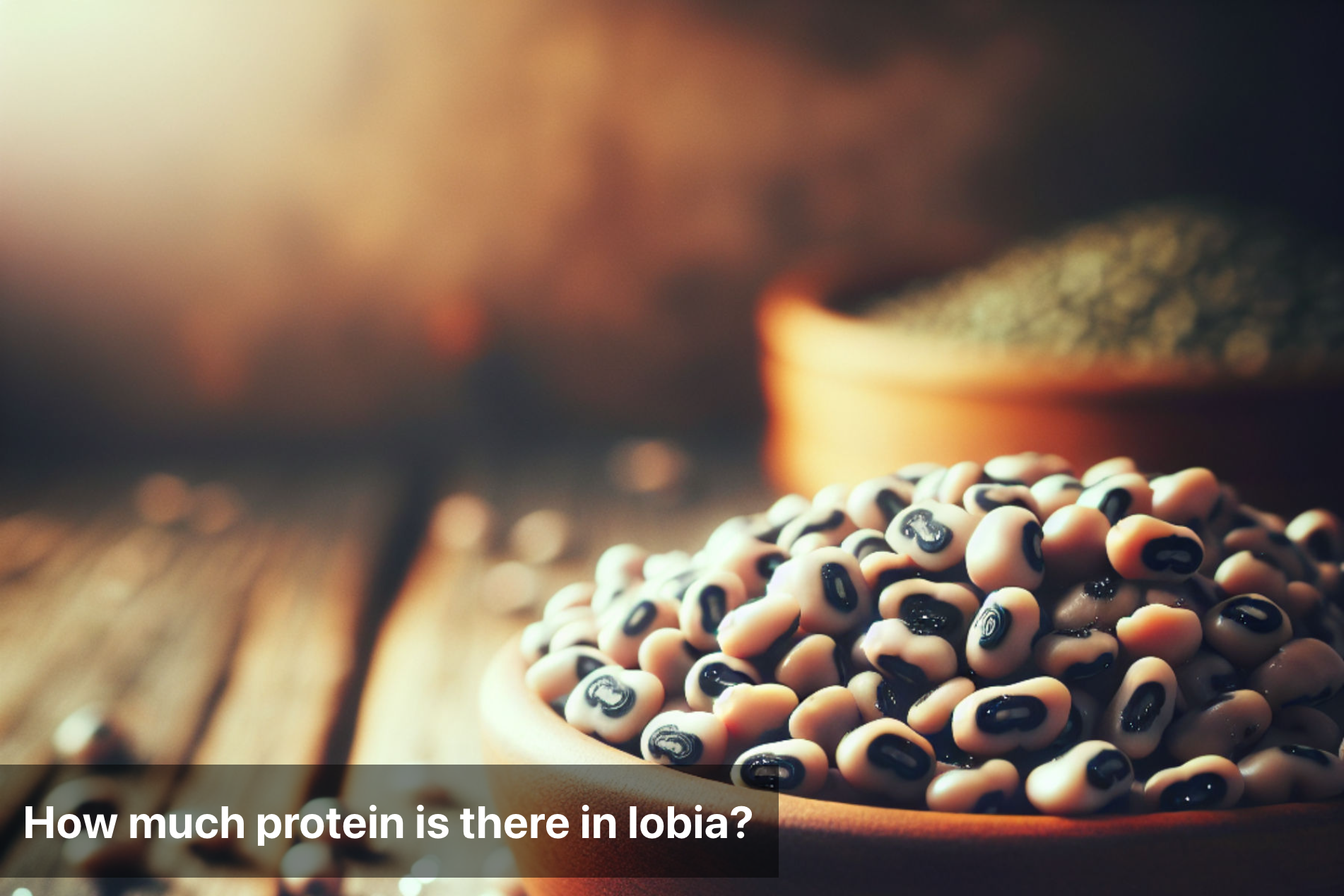
How much protein is there in lobia?

Introduction to Lobia
Lobia, also known as black-eyed peas, is a popular legume packed with essential nutrients, making it a valuable addition to a balanced diet. This small, creamy bean is rich in protein, fiber, and various vitamins and minerals.
When it comes to protein content, lobia stands out as a plant-based source that can effectively contribute to meeting daily protein requirements. Protein is essential for building and repairing tissues in the body, supporting muscle growth, and maintaining overall health. Including lobia in your meals can be a great way to boost your protein intake, especially for individuals following a vegetarian or vegan lifestyle.
Moreover, lobia is a versatile ingredient that can be used in various dishes, from soups and stews to salads and curries. Its nutty flavor and firm texture make it a delicious and satisfying addition to both traditional and modern recipes.
In essence, by incorporating lobia into your diet, you not only enhance the nutritional value of your meals but also enjoy the benefits of a protein-rich food that supports your overall well-being.
Nutritional Breakdown of Lobia
One cup (170 grams) of cooked black-eyed peas contains the following nutrients:
Calories |
194 |
Protein |
13 grams |
Fat |
0.9 grams |
Carbs |
35 grams |
Fiber |
11 grams |
Folate |
88% of the DV |
Copper |
50% of the DV |
Thiamine |
28% of the DV |
Iron |
23% of the DV |
Phosphorus |
21% of the DV |
Magnesium |
21% of the DV |
Zinc |
20% of the DV |
Potassium |
10% of the DV |
Vitamin B6 |
10% of the DV |
Selenium |
8% of the DV |
Riboflavin |
7% of the DV |
Health Benefits of Protein in Lobia
Protein is an essential component of a balanced diet, playing a crucial role in various bodily functions. As the building block of tissues, muscles, and organs, protein is necessary for overall health and well-being. Incorporating protein-rich foods like lobia into your diet can significantly contribute to meeting your daily protein requirements.
Lobia, also known as black-eyed peas, is a legume that is loaded with protein, making it a valuable addition to vegetarian and vegan diets. A 1-cup serving of cooked lobia contains approximately 13-15 grams of protein, making it an excellent plant-based protein source.
By including lobia in your meals, you can benefit from its protein content, which aids in tissue repair, muscle growth, and immune function.
Additionally, the protein in lobia helps regulate blood sugar levels, promote satiety, and support weight management.
Moreover, lobia is rich in fiber, vitamins, and minerals, further enhancing its nutritional value. Incorporating lobia into your diet can not only boost your protein intake but also provide essential nutrients for overall health.
The health benefits of protein in lobia extend beyond meeting daily protein requirements. By including this nutrient-dense legume in your meals, you can enhance your diet and support your overall well-being.
Ways to Incorporate Lobia in Your Diet
Lobia, also known as black-eyed peas, is a versatile legume that can be easily incorporated into various dishes to boost the protein content of your meals. Here are some creative ways to add lobia to your diet:
Lobia Salad: Combine boiled lobia with colorful bell peppers, cucumbers, cherry tomatoes, and a sprinkle of feta cheese. Drizzle with a tangy vinaigrette dressing for a refreshing and protein-packed salad.
Lobia Soup: Create a hearty lobia soup by simmering cooked lobia with diced vegetables like carrots, celery, and onions in a flavorful broth. Add herbs and spices for a comforting bowl of protein-rich goodness.
Lobia Curry: Cook lobia in a fragrant blend of spices, tomatoes, and onions to make a delicious curry. Pair it with rice or roti for a satisfying meal that is both nutritious and tasty.
Lobia Dip: Blend boiled lobia with garlic, lemon juice, and olive oil to make a creamy and protein-packed dip. Enjoy it with veggie sticks or whole grain crackers for a healthy snack option.
-
Lobia and Quinoa Bowl: Combine cooked lobia with quinoa, roasted vegetables, and a drizzle of tahini dressing for a wholesome and protein-rich grain bowl.
By incorporating lobia into your diet in these creative ways, you can increase your protein intake while enjoying delicious and nutritious meals.

Lobia: A Protein-Rich Legume
Lobia, also known as black-eyed peas, offers a plethora of health benefits due to its rich nutrient profile, with protein being a standout component. Protein plays a crucial role in muscle development, repair, and overall body function, making it an essential nutrient for individuals of all ages.
By incorporating lobia into your diet through various creative recipes and meal ideas, you can elevate your protein intake in a flavorful and nutritious manner. From stews to salads, lobia adds a wholesome touch to your meals while boosting your protein consumption.
Remember, a diet rich in protein, such as lobia, can contribute to improved muscle strength, satiety, and overall well-being. So, next time you plan your meals, consider the protein-packed goodness of lobia for a healthier lifestyle. Embrace the goodness of protein in lobia and nourish your body from within.
This Blog post is an initiative by Lo! Foods, to provide accurate and Nutritionist / Doctor approved information related to Health. Lo! Foods is India's leading brand for Everyday Functional Foods. Foods designed for specific Health conditions or Needs. Lo! Foods also runs India's largest range of Low Carb Healthy Cloud Kitchens, under the brand names of Lo!, ProteinChef, ATH (All Things Healthy) and DiabeSmart.













Leave a comment
Your email address will not be published.